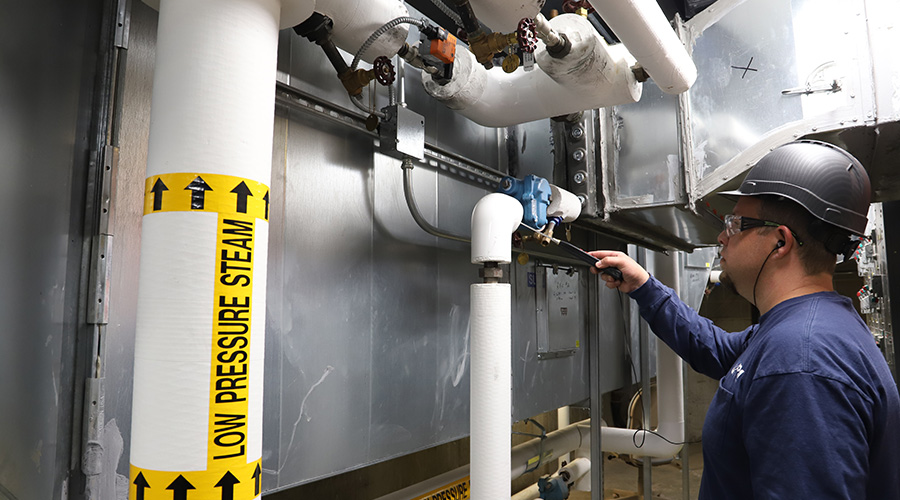Healthcare facilities managers play an important role in ensuring organizations function properly. The way managers handle medical waste planning can have a direct impact on employees’ physical and mental wellbeing, as well as the environment. Managers need to prioritize education on ways to properly dispose of medical waste in a sustainable and safe way so facilities remain efficient and compliant.
According to the World Health Organization, 85 percent of all medical waste generated is typically non-hazardous in nature, but most of it is disposed of by burning and incineration. This approach draws concerns because medical waste is responsible for a bulk of all particulate matter, dioxins and furans emissions. In addition, improperly managed waste can increase the risk of injuries and spread disease.
“Improperly disposed medical waste also has a detrimental impact on the environment,” says Jim Anderson, vice president of commercial strategy with Stericycle. “Effective, compliance-based medical waste management can divert certain plastics and other types of waste from landfills. On the other hand, if certain types of waste like pharmaceutical and sharps waste are disposed incorrectly, they could end up in community waterways, harming local neighborhoods and ecosystems.”
It is important to note that healthcare facilities are responsible for upwards of five million tons of waste each year. Sales of medical waste containers are expected to grow at a CAGR of 6 percent by 2031, valuing at $36 billion. With this increase, managers should create a plan for disposing of materials that fits within a facilities’ workflow. By collaborating with employees, facilities managers can identify specific areas of improvement and set relevant safety and sustainability goals that align with regulatory guidance.
“After setting goals and policies, healthcare leaders need to educate their workforce,” Anderson says. “Every healthcare facility is different and has unique needs, so the type and frequency of trainings should be designed to meet those needs. We recommend that every healthcare facility manager takes OSHA training to keep safety at the center of their operation.”
Improper medical waste management plans can also lead to inefficiency within operations. If employees are not properly trained, they could waste valuable time re-learning how to properly dispose of it. Meanwhile, it can also lead to legal and compliance issues. Federal and state governments have specific policies that dictate the proper treatment of biohazardous waste. If this is not followed, facilities can risk significant fines and legal costs.
“The primary goal of medical waste management is and always will be preventing infection and keeping people safe,” Anderson says. “The challenge for healthcare facilities now is identifying how to manage waste sustainably, while still keeping health and safety as their North Star. One way healthcare organizations can start to do so is to seek reusable resources instead of single use plastics where appropriate.”
Mackenna Moralez is the associate editor with Healthcare Facilities Today.

 Biofilm 'Life Raft' Changes C. Auris Risk
Biofilm 'Life Raft' Changes C. Auris Risk How Healthcare Restrooms Are Rethinking Water Efficiency
How Healthcare Restrooms Are Rethinking Water Efficiency Northwell Health Finds Energy Savings in Steam Systems
Northwell Health Finds Energy Savings in Steam Systems The Difference Between Cleaning, Sanitizing and Disinfecting
The Difference Between Cleaning, Sanitizing and Disinfecting Jupiter Medical Center Falls Victim to Third-Party Data Breach
Jupiter Medical Center Falls Victim to Third-Party Data Breach